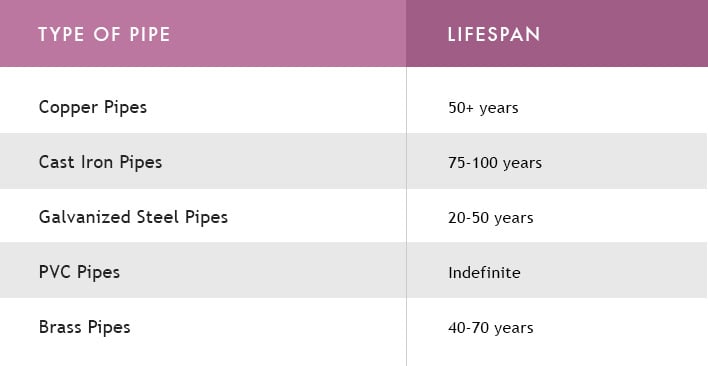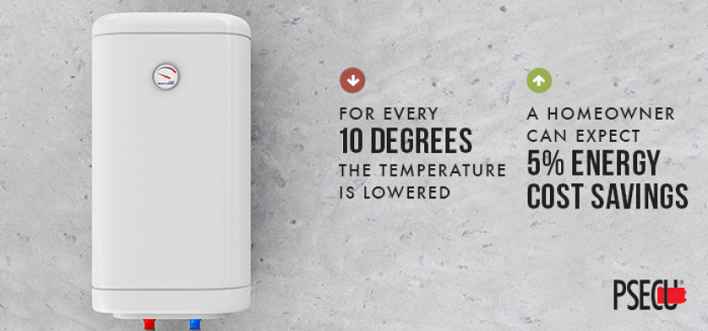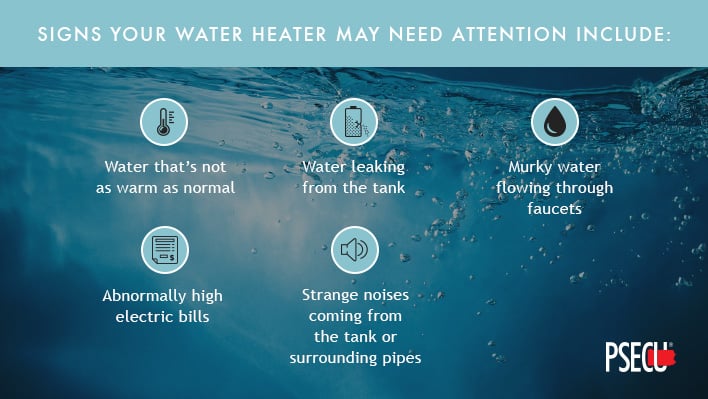How much do you know about general plumbing maintenance? While there are many differences among specific home plumbing systems, this chapter is designed to give an overview of general plumbing maintenance that applies to most homes, regardless of which water system they rely on.
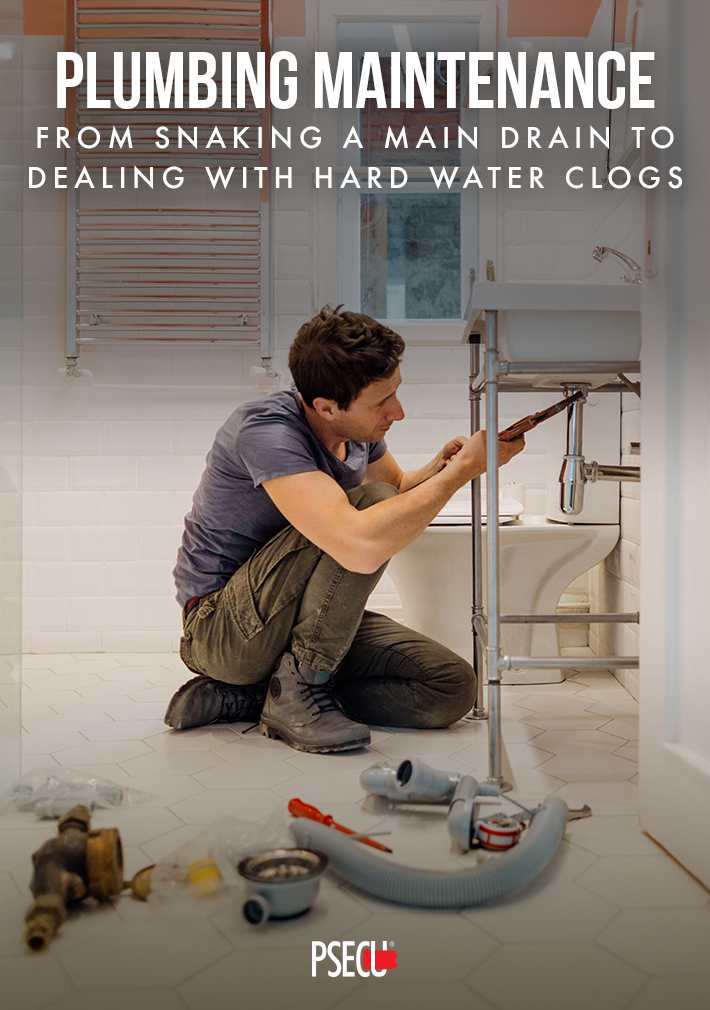
Preventing Clogs
Drain clogs can happen in all homes. However, by understanding how drains work and taking a few simple steps, you may be able to prevent severe clogs, resulting in costly repairs.
 A few of the best ways to keep drains clear include:
A few of the best ways to keep drains clear include:
- Paying attention to what goes into, and near, your drains. Things to avoid include: hair, grease — which hardens at room temperature — and thick soaps. Just because something can physically go down the drain doesn’t mean it should.
- Running hot water. Running hot water through the drain can help keep the drain clear and keep anything that shouldn’t have gone down the drain from becoming stuck.
- Cleaning the drains regularly with baking soda and vinegar. These agents work together to eliminate buildup before it becomes a problem. They’re also great for preventing odors from building up in your garbage disposal. To clean your drain or disposal, add approximately half a cup of baking soda to the drain and let it sit for a few minutes. Then, pour half a cup of white vinegar in. You’ll see the reaction that takes place. Once the fizzing has stopped, run hot water through the drain to complete the process.
Main Drain Line Clogs
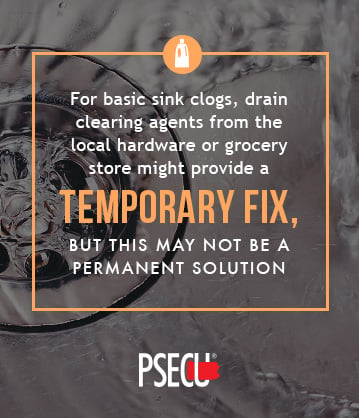 Clogs happen, even if you use the above preventative measures. These clogs can come from natural buildups or foreign objects. While there are options for clearing drains on your own – like renting a jetting machine and sewer line camera, there are potential risks that accompany them.
Clogs happen, even if you use the above preventative measures. These clogs can come from natural buildups or foreign objects. While there are options for clearing drains on your own – like renting a jetting machine and sewer line camera, there are potential risks that accompany them.
Before deciding how to proceed, it’s best to review online tutorials to assess your comfort level. Many home maintenance tasks can be performed on your own, but assessing your abilities and knowledge of the situation beforehand is critical. If you don’t feel comfortable, there’s nothing wrong with calling a professional, which could end up saving you money in the long run.
The most important thing to remember when dealing with a clog is that it’s best to take action as soon as signs of trouble occur and before the clog becomes worse or a complete blockage takes place.
Plumbing Pipes – Are They All the Same? Upkeep and Cleaning
Plumbing is confusing. For those who are non-professionals, the thought of the systems of pipes that help keep homes functioning at their best can be overwhelming. In case you’ve wondered how to clean water pipes in your home or how long certain pipes last, below is basic information to help you move in the right direction.
There are differences between how long copper pipes last and how long cast iron sewer pipes last, and understanding these lifespans may be beneficial. You don’t need to be overwhelmed. Just check out the lifespans of various pipe types below, along with additional plumbing information to keep in mind.
Take the time to become familiar with the pipes in your home and match them against the year your home was built. By understanding the lifespan of each type, you can be more proactive in your maintenance approach. If a certain piping system is coming up on the end of its expected lifespan, additional checks may be warranted.
If you’re buying an older home, even one built through the 1990s, there’s additional information to keep in mind. Between the 1970s and 1990s, polybutylene piping was used in certain homes. The piping is prone to breakage and can cause major damage. If you’re purchasing a home built in that time frame, or are unsure of whether polybutylene piping was used in your home’s construction, an inspection may be helpful. If it’s found, it should be replaced.
Additionally, homes built in the early 1990s may have lead pipes. These pipes were used due to their long lifespans, but they can contaminate drinking water with lead. If you want to know whether or not this dangerous mineral is affecting your water, visit your local hardware store to get a lead-testing kit. Results showing more than 15 parts per billion are a serious problem, so contact a plumber as soon as possible if your results reflect an issue.
Water Heater Maintenance Checklist
Along with other standard household appliances, fixtures and systems, replacing a water heater can be costly. While this is sometimes unavoidable, especially after the water heater reaches a certain age, both one-time tasks and annual checkups could help extend its useful life – saving you money in the long run.
One-Time Tasks
Certain actions could extend the life of your water heater and/or save you money. These include:
- Adjusting the temperature to 120 degrees. For every 10 degrees the temperature is lowered, a homeowner can expect 5% energy cost savings. This is based on the idea that a water heater is working constantly to heat water. Decreasing the energy it must expend decreases the cost to keep it running. To save more money, the temperature can be lowered further if you plan on being away from the home for an extended period of time.
- Insulating the pipes surrounding the water heater. This is especially important if the pipes are exposed or housed in variable temperatures, such as in a garage. To complete the process, purchase 3/8-inch-thick pipe insulation — generally made of foam — that matches the diameter of your water heater’s pipes. Then, slide the foam over any exposed pipes and squeeze the insulation closed.
- Insulating the heater itself. Once more, this is most appropriate if the water heater is located in an area with varying temperatures. To insulate a water heater, purchase an insulating blanket designed for appliances. If you’re unsure of where to start, talk to a professional at your local hardware store. Cut holes in the blanket to make room for pipes and valves that stick out of the heater’s tank. Wrap the heater and seal any open areas with foil tape. Be sure to leave the top of the heater exposed and not covered, for safety purposes.
While regular maintenance is critical, sometimes unexpected problems may arise. Signs your water heater may need attention include:
Like with other home systems, if something seems off, it’s best to contact a professional to investigate the cause as quickly as possible.
Read our other chapters
Chapter 1
Why Maintenance Matters and How to Budget for It
Chapter 2
Plumbing Maintenance — From Snaking a Main Drain to Dealing with Hard Water Clogs
Chapter 3
Well Maintenance — Water Well Maintenance Starts With Understanding Groundwater Basics
Chapter 4
Septic Tank Maintenance — Preventative Care for Your Tank and Spotting Warning Signs
Chapter 5
Sewer Line Maintenance — From Understanding How Systems Work to Spotting Clogs
Chapter 6
HVAC System Maintenance — Keeping Your Home Comfortable Throughout the Year
Chapter 7
Insulation — Better Insulating Your Home and Preventing and Addressing Drafts
Chapter 8
Home Exterior Maintenance — Saving Costs by Identifying Seasonal Tasks
Chapter 9
Home Improvement Ideas — Adding Value to Your Home and Getting a Return on Your Investment
Download all chapters as a PDF.
The content provided in this publication is for informational purposes only. Nothing stated is to be construed as financial or legal advice. Some products not offered by PSECU. PSECU does not endorse any third parties, including, but not limited to, referenced individuals, companies, organizations, products, blogs, or websites. PSECU does not warrant any advice provided by third parties. PSECU does not guarantee the accuracy or completeness of the information provided by third parties. PSECU recommends that you seek the advice of a qualified financial, tax, legal, or other professional if you have questions.

